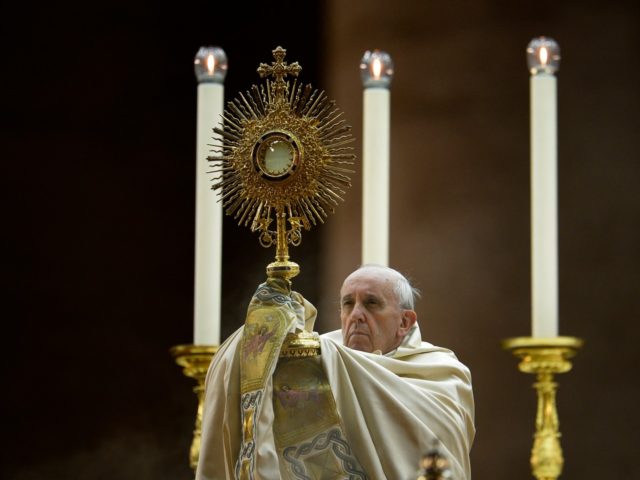Pope Francis has chosen an ecological theme for his annual Lenten message, depicting the Christian call to spiritual conversion against the backdrop of the environment.
“When we live as children of God,” the pope states in his 1200-word message, “we also benefit creation by cooperating in its redemption. That is why Saint Paul says that creation eagerly longs for the revelation of the children of God.”
The text, titled “For the creation waits with eager longing for the revealing of the children of God” is dated October 4, 2018, the feast of Saint Francis of Assisi, but was only made public by the Vatican on Tuesday.
Sin, the pontiff writes, “has disrupted our communion with God, with others and with creation itself, to which we are linked in a particular way by our body.”
“This rupture of communion with God likewise undermines our harmonious relationship with the environment in which we are called to live, so that the garden has become a wilderness,” he states.
“Sin leads man to consider himself the god of creation, to see himself as its absolute master and to use it, not for the purpose willed by the Creator but for his own interests, to the detriment of other creatures,” he writes.
In 2015, Francis became the first pope in history to devote an entire “encyclical” letter to the care for the environment with the publication of Laudato Si (“Praised Be”), urging Christians to become more ecologically aware.
In that text, the pontiff said that the earth “is beginning to look more and more like an immense pile of filth” as “once beautiful landscapes are now covered with rubbish.”
He also denounced a failure to recycle paper and other resources, while calling climate change “a global problem with grave implications” and “one of the principal challenges facing humanity in our day.”
Citing “scientific studies,” the pontiff said that “most global warming in recent decades is due to the great concentration of greenhouse gases (carbon dioxide, methane, nitrogen oxides and others) released mainly as a result of human activity.”
“Every effort to protect and improve our world entails profound changes in lifestyles, models of production and consumption, and the established structures of power which today govern societies,” he warned.
In this year’s Lenten message, Francis says that the sin that lurks in the human heart “leads to the exploitation of creation, both persons and the environment, due to that insatiable covetousness which sees every desire as a right and sooner or later destroys all those in its grip.”
“Creation urgently needs the revelation of the children of God, who have been made “a new creation,” the pope writes. “Indeed, by virtue of their being revealed, creation itself can celebrate a Pasch, opening itself to a new heaven and a new earth.
“This ‘eager longing,’ this expectation of all creation, will be fulfilled in the revelation of the children of God, that is, when Christians and all people enter decisively into the ‘travail’ that conversion entails,” he says.
Turning to the classic Lenten devotions of fasting, prayer, and almsgiving, the pope suggests that each of these has an ecological dimension.
Fasting means “learning to change our attitude towards others and all of creation, turning away from the temptation to ‘devour’ everything to satisfy our voracity,” he says.
Almsgiving, on the other hand, leads us to “escape from the insanity of hoarding everything for ourselves” and to “rediscover the joy of God’s plan for creation and for each of us, which is to love him, our brothers and sisters, and the entire world, and to find in this love our true happiness.”
May our Lent this year bring “the hope of Christ also to creation, so that it may be ‘set free from its bondage to decay and obtain the glorious liberty of the children of God,’” Francis prays.
By welcoming Christ’s victory over sin and death into our lives, “we will also radiate its transforming power to all of creation,” he concludes.
Follow Thomas D. Williams on Twitter Follow @tdwilliamsrome

COMMENTS
Please let us know if you're having issues with commenting.